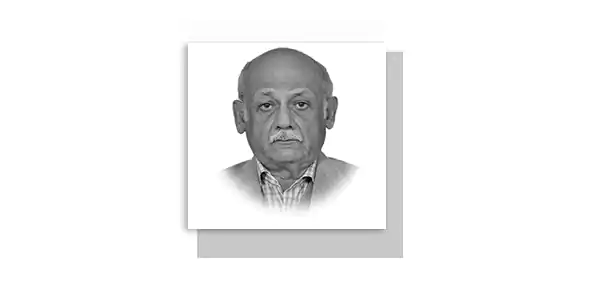There are many reasons why nations have failed and ended up on the dust heap of history.
The reasons could be economic, social or historical but one major reason for failure has al-ways been corruption.
Almost all failed states in recent history have one common factor and that is a corrupt bureaucracy, corrupt political leaders and a corrupt society.
The all-round pervasive corruption in Pakistan in the present times has nearly destroyed the very foundations of Pakistan.
A country founded on the promise of an egalitarian society based on religious principles has now spiralled down to all round corruption from the grass roots levels to the highest echelons of the government and crisscrossing across all levels of society.
The stench of decay and rot is all over and this deep rooted cancer has promoted bribery, cheating and all forms of unethical practices.
Ordinary hard working people are now held hostage and powerless by the forces of the corrupt mafias ruling the roost in this country.
No country lacking moral integrity can survive and sooner or later is bound to join the list of failed states. To combat this malignant tumour in our society Pakistan has to adopt a serious, determined and multi-faceted approach. Corruption will not end just by blaming politicians and chanting slogans the answer lies in our age old traditions, social values and ethical lessons at all levels to strengthen the moral foundations of society. Making Islamiat compulsory or building more deeni madaris and mosques will not end corruption. Education providers — schools, madaris, colleges and universities — must champion this cause, supported by parents, religious scholars and community leaders. Achieving this vision requires a concerted effort, balancing a top-down approach led by the state with a bottom-up movement driven by the people. There is an urgent need to improve ethics in public life and that can be done only by a serious and comprehensive attempt. All institutions must be strengthened and free of political influence, judicial independence must be ensured, the media must be free and independent and the ruling class must be made accountable for their deeds and actions. The legal system and the judiciary have to be overhauled and all laws that suppress freedom of speech and thought must be abrogated.
A society upholding the principle of ethics and morality cannot be built without a great effort to involve individuals, families, communities and institutions from the grass roots levels to the highest levels of society. An integrated curriculum in schools and madaris that emphasize ethics and moral values such as honesty, justice, tolerance and respect for others is essential. When combined with positive and assertive parenting practices, children can grow into socially responsible adults. Families, as the first school of ethics, play a foundational role in shaping future generations. Strong family bonds significantly influence the moral behaviour of children, fostering integrity and accountability. Ethical literacy must be promoted by organizing seminars and workshops to teach universal human values and promote community support systems like neighbourhood watch programs and volunteer opportunities. Mosques and other places of worship can serve dual roles as centres for moral education and spiritual guidance. Religious scholars can play a critical role by delivering sermons that address relevant ethical concerns and inspire positive change. Role modelling can be a great tool for ethical training and our history is replete with some impressive role models for our youth to emulate. Highlighting and celebrating individuals such as community leaders, business people and public servants who exemplify high ethical standards is crucial for inspiring others. Engaging the youth through programs within religious institutions that focus on applying ethical principles in social and public life can be transformative. Additionally, training government officials and public servants in ethical decision-making will ensure that principled frameworks guide public administration and leadership. Public discourse on moral and ethical values through debates and panel discussions must be encouraged. Encouraging self-examination as a tool for personal growth and moral integrity should begin early in children’s lives. Partnering with NGOs and civil society organizations focused on ethics, human rights and social justice can amplify these efforts, contributing significantly to national re-generation. Technology can play a great role in the fight against corruption. Social media and digital platforms must be harnessed to promote ethical living based on our religious and social principles. Creating online communities for discussions on ethics and morality provides a space for individuals to learn, share ideas and grow in their understanding of ethical living in a modern context.
By integrating these strategies, Pakistan can cultivate a culture of ethical awareness, personal responsibility and social integrity, paving the way for sustainable development and moral rejuvenation. By embedding strict moral values throughout our society we can introduce a culture where moral and ethical behaviour is a way of life. In this electronic and digital age our students are denied any form of physical activity and most educational institutions do not have any facilities for sports and games. Our society is now full of impulsiveness, intolerance and short tempers.
— The writer is Professor of Politics and IR at International Islamic University,
Islamabad.
(drmkedu@gmail.com)










